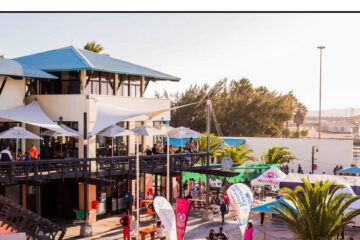Niël Terblanché
In a landmark ruling delivered on 13 March 2024, a panel of judges of the Supreme Court of Namibia set a legal precedent on the appealability of default judgments in the nation’s legal system when they found that Paragon Investment (Pty) Ltd could indeed install a weather analysis system for the Namibian Meteorological Service.
The case, involving a dispute over the procurement of an Automated Weather Observing System for the Namibian Meteorological Services, saw Central Technical Supplies (Pty) Ltd challenge the awarding of the contract to Paragon who entered into a joint venture with the China Huayun Group to provide the equipment.
In August 2021, the Ministry of Works and Transport advertised bids for the supply and installation of the weather analysis system, aiming to enhance Namibia’s weather forecasting capabilities.
Central Technical Supplies, among others, submitted a bid but was overlooked in favour of Paragon, leading to a legal challenge on the grounds of experience and the involvement of a non-Namibian entity in the joint venture, which they argued contradicted the bid’s intention to benefit Namibian citizens.
The ensuing legal battle highlighted critical procedural and regulatory issues within Namibia’s Public Procurement Act of 2015.
Central Technical Supplies and Thompsons Electronics and Technology, who also formed a joint venture took their grievances to a Review Panel, which ruled in their favour, ordering a restart of the procurement process.
However, Paragon’s successful High Court appeal against this decision brought the case to the Supreme Court’s attention.
The Supreme Court’s ruling focused on two pivotal legal questions: the appealability of default judgments and the rights of appellants in such scenarios.
The Supreme Court determined that for a decision to be appealable, it must be final in effect and not susceptible to alteration by the court of first instance.
The court concluded that default judgments are not appealable as they are provisional and subject to rescission.
The panel of judges, therefore, found that appellants must first seek rescission from the court that issued the default judgment or obtain leave to appeal if the rescission is refused.
As a result, the panel of Supreme Court Judges struck the appeal from the court’s roll and ordered that the appellant carry the legal costs.
The Supreme Court’s ruling stresses the need for appellants to exhaust all remedies in the lower courts of Namibia before seeking appellate relief.
The decision of the panel of judges also sheds more light on the intricacies of Namibia’s procurement laws.
Sisa Namandje assisted by Karel Natangue Gaeb from Sisa Namandje and Company Inc. delivered arguments before the court on behalf of Paragon Investments (PTY) Ltd and other respondents while the appellant was represented by Advocate Raymond Heathcote assisted by JP Ravenscroft-Jones on the instruction of Engling, Stritter and Partners.




